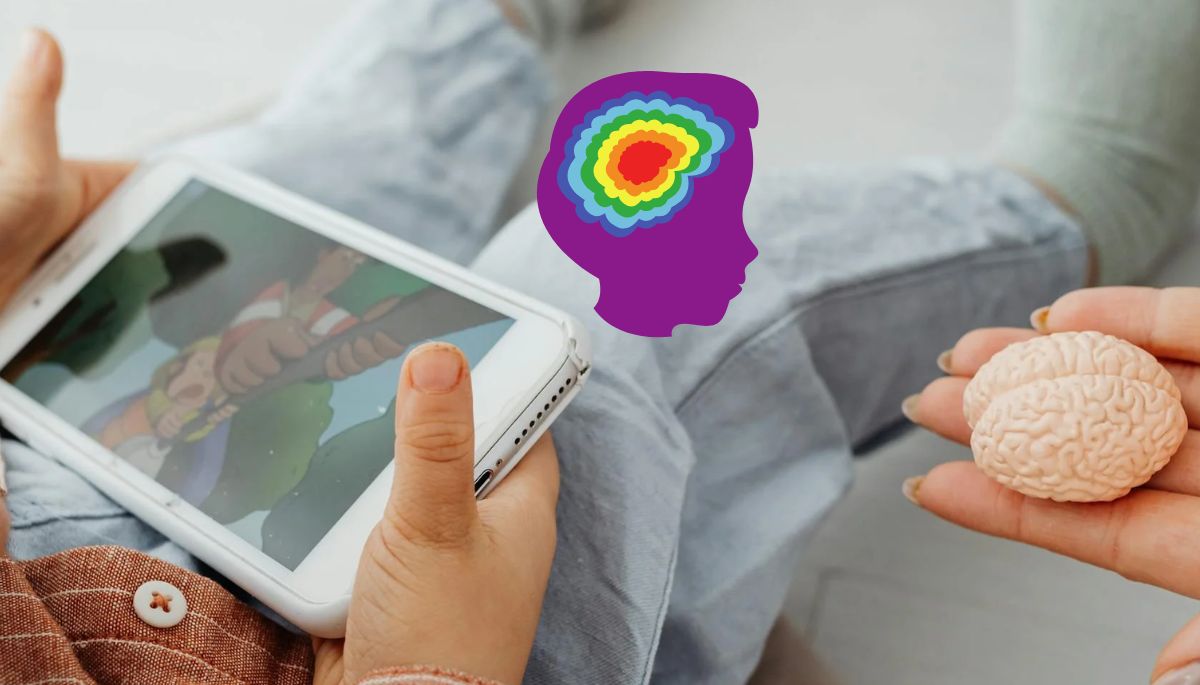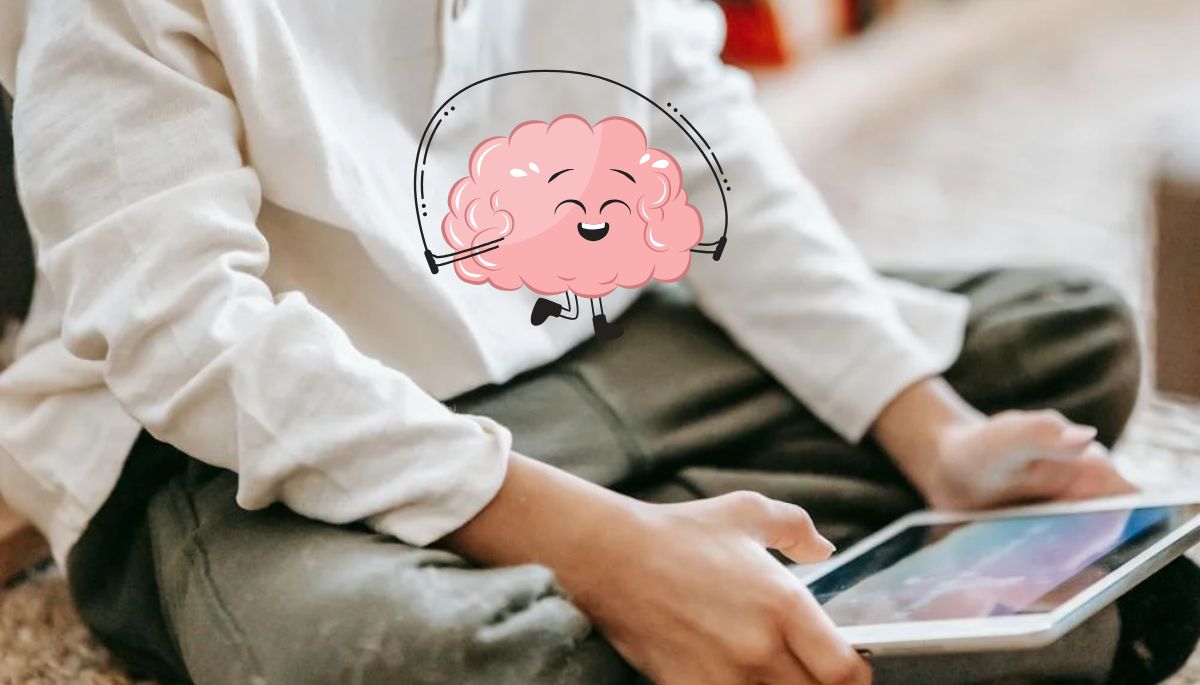Video games have become a big part of life for kids everywhere, but how do they actually affect their brains? Some parents worry about video games harming their child’s development, while others see them as a great way to build skills. This guide dives into how video games affect the brain for kids, including both positive and negative impacts. Let’s take a closer look at what science says and how you can help your child play video games in a healthy way.
Positive Effects of Video Games on Kids’ Brains
1. Improves Problem-Solving Skills
Certain video games require players to think critically and solve complex problems. Games like Minecraft and Portal involve creating strategies, solving puzzles, and using logic to progress. Studies show that kids who play these types of games can improve their problem-solving skills, which can be beneficial in school and life.
2. Boosts Memory and Focus
Many video games require players to remember rules, characters, and details, which can help boost memory. Fast-paced games can also improve focus, as players need to pay close attention to what’s happening on the screen. Memory-enhancing games like puzzles and word games are great for building concentration and short-term memory.
3. Encourages Social Interaction
Multiplayer games, such as Fortnite or Among Us, can help kids build social skills. Playing online with friends teaches them how to work as a team, communicate effectively, and respect others’ opinions. Video games give kids a way to connect and make new friends, especially when they play games that encourage teamwork.
Negative Effects of Video Games on Kids’ Brains
1. Can Lead to Addiction
Some games are designed to be highly engaging, which can make it easy for kids to get hooked. Too much gaming time can lead to video game addiction, where kids feel the need to play for long hours, sometimes ignoring other activities, schoolwork, or even sleep.
2. May Increase Aggressive Behavior
Certain action games, especially those involving combat or violent themes, can increase aggression or make kids more prone to angry outbursts. Games with a lot of shooting, fighting, or intense competition may make children more impulsive or irritable in real life.
3. Reduces Physical Activity
Kids who spend too much time gaming may spend less time being active. This can impact their physical health, leading to problems like weight gain, poor posture, and a lack of outdoor playtime. Ensuring a balanced schedule with some time for exercise can prevent these issues.
Tips for Parents: Balancing Screen Time
| Tip | Explanation |
|---|---|
| Set Time Limits | Limit gaming to an hour or two per day to encourage balance with other activities. |
| Choose Age-Appropriate Games | Look for games rated for your child’s age group to ensure safe and suitable content. |
| Encourage Breaks | Remind kids to take breaks every 30–60 minutes to rest their eyes and move around. |
| Discuss Game Content | Talk to your child about the games they play and what they enjoy or find challenging. |
| Promote Active Gaming | Try games that involve physical movement, like dance or sports games, to keep kids active. |
How Video Games Affect Different Parts of the Brain

1. Frontal Lobe (Decision-Making and Focus)
The frontal lobe is essential for decision-making, focus, and planning. Games that require strategic thinking, like Civilization or SimCity, can stimulate this part of the brain. Kids who play these games may improve their ability to make decisions quickly and focus on tasks.
2. Hippocampus (Memory and Learning)
The hippocampus is involved in forming memories and learning. Puzzle games and adventure games often require players to remember paths, characters, and in-game rules, which can enhance memory and learning ability. This can be particularly helpful for kids in school.
3. Amygdala (Emotion and Behavior)
The amygdala plays a big role in emotions and behavior. Games with intense action or violence can stimulate the amygdala and may lead to heightened emotional responses, such as aggression or excitement. For younger kids, sticking to calmer games can help manage emotional development.
May You Like : How Does Video Games Help With Problem Solving Skills
Creating Healthy Gaming Habits
- Set Clear Rules: Outline when and how long your child can play each day. Make sure the rules are easy to follow and consistent.
- Encourage Balance: Encourage other hobbies, like reading, sports, or outdoor activities, so gaming isn’t the main focus.
- Use Parental Controls: Many consoles and games come with settings that allow parents to set time limits and monitor activity.
- Watch for Signs of Gaming Fatigue: If your child becomes tired, irritable, or distracted after gaming, it may be time to limit their screen time.
- Play Together: Join in on the fun, Playing video games together can be a great way to connect with your child and learn more about their interests.
Encouraging Positive Gaming Skills in Kids
| Skill | How Video Games Help | Example Games |
|---|---|---|
| Hand-Eye Coordination | Fast-paced games help kids develop quicker reflexes and coordination. | Rocket League, Fortnite |
| Strategic Thinking | Strategy games improve planning and critical thinking skills. | Age of Empires, Stardew Valley |
| Creativity | Building and designing games foster creativity. | Minecraft, Animal Crossing |
| Social Skills | Multiplayer games teach teamwork, patience, and communication. | Among Us, Roblox |
Finding the Right Games for Your Child
When choosing games for your child, keep their age, interests, and maturity level in mind. Here are some age-appropriate game suggestions that offer both fun and learning benefits:
| Age Group | Recommended Games | Benefits |
|---|---|---|
| Ages 3-6 | PBS Kids Games, Lego Duplo World, Endless Alphabet | Builds vocabulary, creativity, and basic problem-solving |
| Ages 7-10 | Minecraft, Animal Crossing: New Horizons, Super Mario | Enhances creativity, social skills, and spatial awareness |
| Ages 11-13 | The Legend of Zelda, Sims 4, Kerbal Space Program | Encourages critical thinking, design, and planning |
| Ages 14+ | Civilization VI, Fortnite (in moderation), Rocket League | Develops strategic thinking, hand-eye coordination |
Monitoring Screen Time and Activity
It’s important to make sure video games are part of a balanced routine that includes physical activity, family time, and schoolwork. Here are some practical tips for managing screen time:
- Set Gaming Hours: Designate specific times when your child is allowed to play video games. This could be after homework or as a weekend treat.
- Encourage Breaks: Remind kids to take breaks every 30–45 minutes to stretch, move around, and rest their eyes. Setting a timer can help reinforce this habit.
- Make Screen Time Earned: Encourage kids to finish chores or homework before gaming. This builds discipline and keeps them motivated to stay on task.
How to Recognize Signs of Excessive Gaming
Sometimes, kids may become overly focused on gaming, which can interfere with their daily lives. Here are a few signs of excessive gaming to watch for:
- Irritability or Mood Swings: If your child becomes easily upset when asked to stop playing, it might be a sign they’re too invested.
- Decline in School Performance: Poor grades or incomplete assignments could indicate that gaming is taking too much of their time and energy.
- Withdrawal from Social Activities: If gaming starts to replace time with friends or family, it may be worth re-evaluating their gaming habits.
By keeping an eye on these behaviors, parents can step in early to make adjustments if needed.
Benefits of Playing Video Games Together as a Family
Playing video games with your child can be a wonderful way to bond. Family gaming can help parents better understand the games their children enjoy, while also setting a positive example for responsible gaming. Here’s why it’s beneficial:
- Builds Stronger Connections: Sharing gaming experiences can open up new conversations and help parents understand their child’s interests.
- Teaches Healthy Competition: Friendly family competitions teach kids how to handle winning and losing gracefully.
- Encourages Open Dialogue: By playing together, parents can create an open environment to talk about in-game content, rules, and boundaries.
Some family-friendly games include Mario Kart, Overcooked, and Just Dance. These games encourage cooperation, teamwork, and fun, all in a positive setting.
May You Like : Are Video Games a Waste of Time? Worth Your Time or Not
Conclusion
Video games can have a significant impact on children’s brains, bringing both benefits and challenges. By understanding how video games affect the brain for kids, parents can make more informed choices and encourage balanced habits. With thoughtful guidance, kids can enjoy the advantages of gaming—from improved memory and social skills to enhanced creativity and problem-solving. So, set those game limits, join in on the fun, and help your child make the most of their video game experience.
FAQs About How Video Games Affect The Brain For Kids
How much gaming is safe for kids each day?
Experts recommend limiting gaming to one or two hours per day for school-aged children to ensure a balanced lifestyle.
Can video games improve my child’s learning skills?
Yes, some games enhance skills like problem-solving, memory, and focus, which can aid learning.
What type of games is best for younger kids?
Games that encourage creativity, like Minecraft, or educational games are great choices for young kids.
Can violent video games make kids aggressive?
Studies suggest that repeated exposure to violent games can increase aggression in some children, so it’s important to monitor what they play.
Are there ways to keep gaming safe and fun?
Yes, Choose age-appropriate games, set time limits, encourage breaks, and talk with your child about their gaming experience.
May You Like
